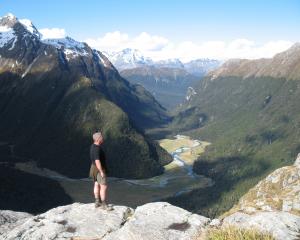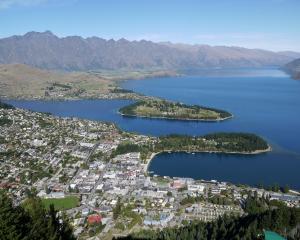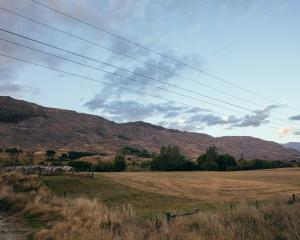In the industry that builds jet fighters, missiles and submarines, the Pacific is seen as a growth area.
Britain and the United States are spending less, the Middle East market is up and down but Asia-Pacific is a region of new opportunity.
Daniel Pacthod is a director of New York-based McKinsey and Co, and he specialises in advising the defence and aerospace industry on how to find and make the most of such opportunities.
He is a speaker at yesterday morning's Aspiring Conversations' sold-out "creativity and innovation drive prosperity'' session in Wanaka.
While his theme is innovation in general, Mr Pacthod this week did offer some views on the possible security threats and defence opportunities that could come New Zealand's way.
He considered the world's defence "centre of gravity'' had shifted to the Pacific, and he expected tension between China and its neighbours in the South China Sea "was there to stay''.
"There's no doubt about that.
"I'm not a political expert ... but I think to some extent it has triggered a very different set of behaviours from the different countries in terms of how they think about their defence strategy.''
Mr Pacthod said, with the "battleground shifting to the Pacific'', it was becoming a "growth arena'' for the defence industry.
"International is a big priority for at least the US defence industry and I think they have realised there is a real opportunity to [enlarge] the footprint.
"If you look at the key platforms, aircraft, submarines ... and things like more cyberinformation services or defence information services, I think these are all areas where I think there is a clear view that there is an opportunity for US players to be a lot more active.''
He noted Australia, which plans a big increase in military spending over the next 10 years, was "becoming an important hub''.
And while he had not looked specifically at the "New Zealand opportunity'', he believed the growth in cyberspace made the country's geographical isolation less relevant.
There were opportunities, he believed, for New Zealand's start-up community and software developers to get involved in the defence industry.
"You have got a way to participate in the global defence ecosystem and, or, also kind of bolstering more cyber and software defence capabilities.
"The thing is, this is one global network and so frankly ... what's important is what kind of talent do you have, what kind of capabilities can you build.
"Almost distance doesn't matter any more as we enter this new age of cyber: cyber security, cyber warfare.''
With predictions of 50 billion internet devices worldwide by 2025, Mr Pacthod described data as "almost the new oil''.
"There's something in today's world about following the data ... following online proprietary data.
"I think every sector, every corporation is trying to figure out what is the proprietary data that I need to either have, build or control to be successful long term.''
Asked if he had any qualms about being involved in the defence industry, Mr Pacthod said his origins were French and German and he grew up with stories from World War 2.
He had "real passion'' for the defence industry because of the executives in it and the innovations it produced, such as the GPS system.
"But I realise we live in a dangerous world and I think security is going to become extremely important.''












